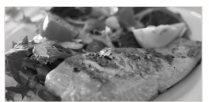We came up to the question “how to join verbs and nouns or verbs and verbs?”
Don’t be afraid of the rules number but try to remember when and where you have heard the following examples. There are only few groups to discover today, so it will be easy for you.
1. Some verbs require “To” after them:
- I want to know. My favorite song by Celentano; I learned the construction “verb +to +verb” thanks to this song.
- You hope to meet him soon.
- She tries to forget that awful film.
- We refuse to follow you.
- They are learning to sing.

2. Some verbs require “-ing” after them. Mostly it concerns the verbs that express feelings (love/hate), termination (finish, stop), and some other verbs (suggest, mind).
- I like singing!
- You hate dancing.
- They enjoy shopping.
- He suggests going to the cinema earlier to buy tickets in advance.
- Finish playing with your dog, please.
- Stop looking at them.
3. Some verbs require either “-ing” or “to” after them (such as start, begin, continue, prefer):
- They prefer working till night. They prefer to work till night.
- Please, start doing your exercises. Please, start to do your exercises.
- I began travelling when I was very young. I began to travel when I was very young.
- We will continue learning after a little break because of our exams. We will continue to learn after a little break because of our exams.
4. Sometimes we want to tell somebody something. But sometimes we want to tell somebody to do something:
- I ask you to go with him.
They want you to be happy.
He advises you to tell the truth. - She tells you to buy some bread.
We expected you to be here later. - You always teach us to help other people.
- They will never persuade me to learn to swim. I’m afraid of water.
5. Sometimes we want to do something to get the result. We explain why we do this or that thing:
- We went out with friends to have fun.
- One of us went out to buy some bread and water.
- All of us had enough time to meet other friends.
- He invited us round to watch two new films.
- I chose the film in Spanish to practice this language.
6. Please, double check when you need to use the infinitive (or -ing) construction, and when we should use other prepositions:
1) If we have two verbs, we choose the infinitive or -ing:
- I want to learn German.
- You have to do a lot of work.
- She watches British films to learn new words.
- They need to speak English more often.
- We advise him to practice English every day.
2) If we have “verb + noun” we do not use “to,” but other prepositions or zero preposition:
- He looks for some milk in the shop.
- I am waiting for my friend.
- They are going to Europe for holidays.
- We need some rest.
- Have you got enough money for a new laptop?
7. One more way to join phrases is to use “that.” “That” is often used in reported (or indirect) speech. It can be omitted in most cases.
Reported speech:
- She told me that she was tired.
- He said that the exam was easy.
Direct speech:
- I know that you are right.
- You think that it is his fault.
Find out homework for this lesson here.





